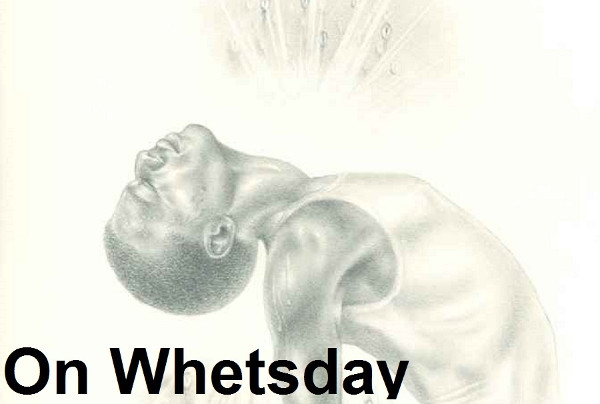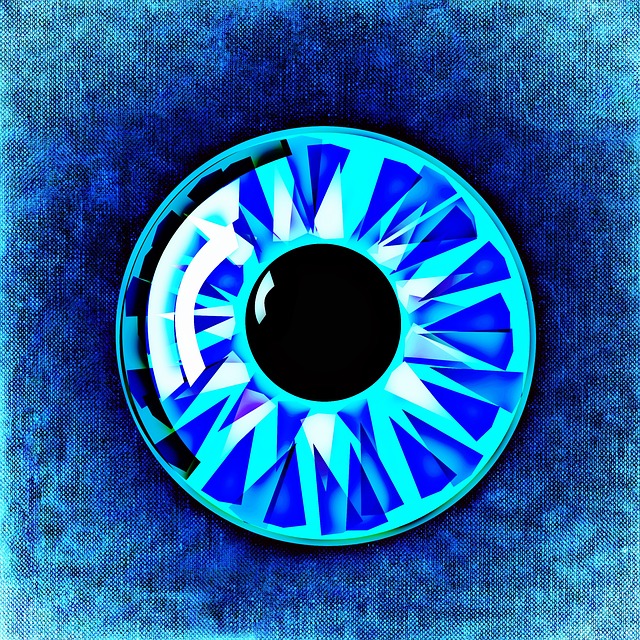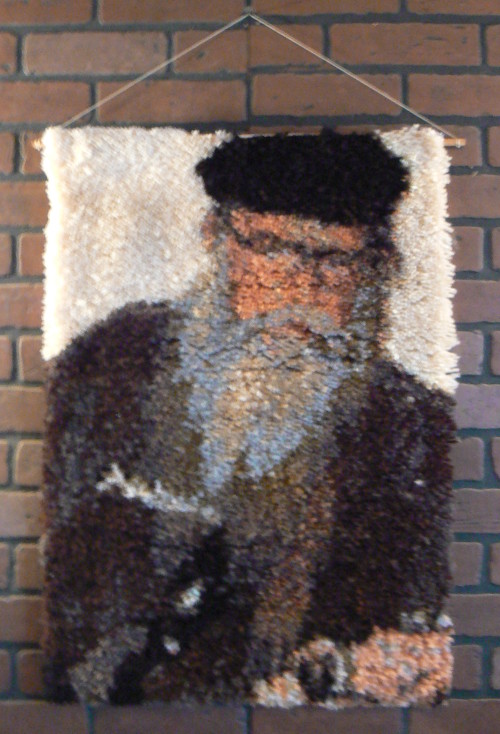Saturday, August 20, 2016
The Small Boat

Heron In A Boat photo by Dave Meier
The Small Boat
by Larry Heyl
CC BY-SA
Caution returned quickly after the heat of the battle. Medjak looked about, listening for any unusual noise. He could still smell the explosives and an awful sweet smell almost as pervasive as the powder. The smell of death.
He made his way down the valley picking through the wreckage. If he could just get back to his unit before the artillery started firing again he could make his report and sleep. Recon was good duty except for the artillery, the land mines and the snipers. Damn, theres one now. Medjak ducked behind a rock just in time. Bullets hit the gravel around him. He returned fire into the trees. During a momentary silence he rolled into a gulley and continue moving. He didn’t know if he killed the sniper or not and he wasn’t sticking his head up to find out.
When the gulley he was in petered out he found another one and made it to the river without being shot at again. His unit was about two miles upstream if they hadn’t moved. If they had he could track them. He’d done it before.
Looking up the river he saw a small wooden boat floating toward him. So peaceful and serene it floated freely down the river as if carrying aristocratic children out for a punt. Afraid of enemy troops lying in the bottom of the boat he climbed a rock on the river bank. Looking down into the boat he could see it was empty.
He didn’t think. He didn’t worry. He acted immediately out of survival instinct. He slid down the rock and when he hit the ground he kicked off his boots and stripped out of his uniform to his underwear. He wrapped his uniform around his gun and crawled to the river. Sticking his gun in the ground bayonet first his jacket sleeves hung loose and rippled in the wind. He rolled into the water and went right under swimming hard to where he thought the boat would be. Breaking water gently he took a quick breath and spied the boat. Under again and he could see it floating over him. He came up with one hand on the back of the boat his nose and eyes barely above water. As he let the boat pull him downstream he heard shots and saw his uniform jacket jump.
After the boat pulled him around the bend he risked pulling himself up into it. He lay on the bottom of the boat breathing heavily. Sometimes the tree limbs closed off the sky and he floated under a green canopy. Other times he saw nothing but blue sky. After a half hour he felt safer but he still laid quiet in the bottom of the boat. Just a month ago he got separated from his unit and went three days without food. He could do it again. In three days he would float 100 miles or more leaving the war behind. But that was still in the future. For now he didn’t move. Laying still in the bottom of the boat he prayed.
On Whetsday

Artwork by Amy Jones
“On Whetsday” is a novel by Mark Sumner. Mark has written other science fiction including “Devil’s Tower”. He also writes non fiction and is a regular blogger at Daily Kos. “On Whetsday” is posted a chapter at a time at Daily Kos.
Fiction / On Whetsday / Part 1
The novel is also available as a podcast on SoundCloud.
This novel is not Creative Commons. If you are interested in it get in touch with Mark. Still, kudos to Mark and his publisher, Word Posse for making the book available for anyone to enjoy.
Carnation, Lily, Lily, Rose

Special Delivery On Bird Island By Zach Rudisin - Own work, CC BY-SA 3.0,
CARNATION, LILY, LILY, ROSE
by Kelly Link CC-BY-NC-SA
Dear Mary (if that is your name),
I bet you’ll be pretty surprised to hear from me. It really is me, by the way, although I have to confess at the moment that not only can I not seem to keep your name straight in my head, Laura? Susie? Odile? but I seem to have forgotten my own name. I plan to keep trying different combinations: Joe loves Lola, Willy loves Suki, Henry loves you, sweetie, Georgia?, honeypie, darling. Do any of these seem right to you?
All last week I felt like something was going to happen, a sort of bees and ants feeling. Something was going to happen. I taught my classes and came home and went to bed, all week waiting for the thing that was going to happen, and then on Friday I died.
One of the things I seem to have misplaced is how, or maybe I mean why. It’s like the names. I know that we lived together in a house on a hill in a small comfortable city for nine years, that we didn’t have kids-except once, almost-and that you’re a terrible cook, oh my darling, Coraline? Coralee? and so was I, and we ate out whenever we could afford to. I taught at a good university, Princeton? Berkeley? Notre Dame? I was a good teacher, and my students liked me. But I can’t remember the name of the street we lived on, or the author of the last book I read, or your last name which was also my name, or how I died. It’s funny, Sarah? but the only two names I know for sure are real are Looly Bellows, the girl who beat me up in fourth grade, and your cat’s name. I’m not going to put your cat’s name down on paper just yet.
We were going to name the baby Beatrice. I just remembered that. We were going to name her after your aunt, the one that doesn’t like me. Didn’t like me. Did she come to the funeral?
I’ve been here for three days, and I’m trying to pretend that it’s just a vacation, like when we went to that island in that country. Santorini? Great Britain? The one with all the cliffs. The one with the hotel with the bunkbeds, and little squares of pink toilet paper, like handkerchiefs. It had seashells in the window too, didn’t it, that were transparent like bottle glass? They smelled like bleach? It was a very nice island. No trees. You said that when you died, you hoped heaven would be an island like that. And now I’m dead, and here I am.
This is an island too, I think. There is a beach, and down on the beach is a mailbox where I am going to post this letter. Other than the beach, the mailbox, there is the building in which I sit and write this letter. It seems to be a perfectly pleasant resort hotel with no other guests, no receptionist, no host, no events coordinator, no bell-boy. Just me. There is a television set, very old-fashioned, in the hotel lobby. I fiddled the antenna for a long time, but never got a picture. Just static. I tried to make images, people out of the static. It looked like they were waving at me.
My room is on the second floor. It has a sea view. All the rooms here have views of the sea. There is a desk in my room, and a good supply of plain, waxy white paper and envelopes in one of the drawers. Laurel? Maria? Gertrude?
I haven’t gone out of sight of the hotel yet, Lucille? because I am afraid that it might not be there when I get back.
Yours truly,
You know who.
The dead man lies on his back on the hotel bed, his hands busy and curious, stroking his body up and down as if it didn’t really belong to him at all. One hand cups his testicles, the other tugs hard at his erect penis. His heels push against the mattress and his eyes are open, and his mouth. He is trying to say someone’s name.
Outside, the sky seems much too close, made out of some grey stuff that only grudgingly allows light through. The dead man has noticed that it never gets any lighter or darker, but sometimes the air begins to feel heavier, and then stuff falls out of the sky, fist-sized lumps of whitish-grey doughy matter. It falls until the beach is covered, and immediately begins to dissolve. The dead man was outside, the first time the sky fell. Now he waits inside until the beach is clear again. Sometimes he watches television, although the reception is poor.
The sea goes up and back the beach, sucking and curling around the mailbox at high tide. There is something about it that the dead man doesn’t like much. It doesn’t smell like salt the way a sea should. Cara? Jasmine? It smells like wet upholstery, burnt fur.
[Read more…]
Friday, August 19, 2016
Driven

Photo by Brandon Wilson
Driven
by Larry Heyl
CC BY-SA
I met him down by the back side of the tracks. They used to call it Hobo Joe’s. Just a 55 gallon drum with a fire in it and a bunch of old bums sharing what they got. Sometimes someone would call out a tune and he’d play it for them.
We traveled together for quite a while. He could kinda make a living with that old guitar. But he was always dreaming. Lost in his music.
He said he was searching for the perfect song. He said when he found it he’d sing it at the perfect moment and time would stand still.
I always wondered why he would want time to stand still. Seemed boring to me. But he’d get all dreamy eyed and his hands would get to loving that guitar. I couldn’t go along but I could listen in. Sometimes what I heard scared me.
But we’d always come back to reality eventually. To wander on to the next town. I remember splitting up. He was heading north in the winter. Didn’t make sense to me. But he was driven by his music into some cold places.
I still think about him every day. Wondering if he ever found the perfect song. Or the perfect moment to sing it in. But I guess not. I think we would notice if all of a sudden time stood
Search Page Images

———–
I found the dragon image above on Pixabay. The artist is PeteLinforth. Here’s the link.
I found the science fiction image below at PublicDomainPictures.net. The artist is kai Stachowiak. Here’s the link.
I wanted to use both a fantasy and a science fiction image. Thanks to the google image search Labeled For Reuse feature under Search Tools. Both images are public domain.
———–

Pixabay

Checkmate - public domain photo by stevepb found at Pixabay
Free images and videos you can use anywhere
All images and videos on Pixabay are released free of copyrights under Creative Commons CC0. You may download, modify, distribute, and use them royalty free for anything you like, even in commercial applications. Attribution is not required.
A fine resource for public domain images donated by the artists.
The Eyes Have It

Eye - public domain image by Alexas fotos
*** START OF THIS PROJECT GUTENBERG EBOOK THE EYES HAVE IT ***
Produced by Greg Weeks, Barbara Tozier and the Online
Distributed Proofreading Team at http://www.pgdp.net
This etext was produced from “Science Fiction Stories” 1953.
Extensive research did not uncover any evidence that the U.S.
copyright on this publication was renewed.
“A little whimsy, now and then, makes for good balance.
Theoretically, you could find this type of humor anywhere. But
only a topflight science-fictionist, we thought, could have
written this story, in just this way….”
———–
“The Eyes Have It”
by PHILIP K. DICK
It was quite by accident I discovered this incredible invasion of
Earth by lifeforms from another planet. As yet, I haven’t done
anything about it; I can’t think of anything to do. I wrote to the
Government, and they sent back a pamphlet on the repair and
maintenance of frame houses. Anyhow, the whole thing is known; I’m not
the first to discover it. Maybe it’s even under control.
I was sitting in my easy-chair, idly turning the pages of a
paperbacked book someone had left on the bus, when I came across the
reference that first put me on the trail. For a moment I didn’t
respond. It took some time for the full import to sink in. After I’d
comprehended, it seemed odd I hadn’t noticed it right away.
The reference was clearly to a nonhuman species of incredible
properties, not indigenous to Earth. A species, I hasten to point out,
customarily masquerading as ordinary human beings. Their disguise,
however, became transparent in the face of the following observations
by the author. It was at once obvious the author knew everything. Knew
everything–and was taking it in his stride. The line (and I tremble
remembering it even now) read:
“… his eyes slowly roved about the room.”
Vague chills assailed me. I tried to picture the eyes. Did they roll
like dimes? The passage indicated not; they seemed to move through the
air, not over the surface. Rather rapidly, apparently. No one in the
story was surprised. That’s what tipped me off. No sign of amazement
at such an outrageous thing. Later the matter was amplified.
“… his eyes moved from person to person.”
There it was in a nutshell. The eyes had clearly come apart from the
rest of him and were on their own. My heart pounded and my breath
choked in my windpipe. I had stumbled on an accidental mention of a
totally unfamiliar race. Obviously non-Terrestrial. Yet, to the
characters in the book, it was perfectly natural–which suggested they
belonged to the same species.
And the author? A slow suspicion burned in my mind. The author was
taking it rather “too easily” in his stride. Evidently, he felt this
was quite a usual thing. He made absolutely no attempt to conceal this
knowledge. The story continued:
“… presently his eyes fastened on Julia.”
Julia, being a lady, had at least the breeding to feel indignant. She
is described as blushing and knitting her brows angrily. At this, I
sighed with relief. They weren’t “all” non-Terrestrials. The narrative
continues:
“… slowly, calmly, his eyes examined every inch of her.”
Great Scott! But here the girl turned and stomped off and the matter
ended. I lay back in my chair gasping with horror. My wife and family
regarded me in wonder.
“What’s wrong, dear?” my wife asked.
I couldn’t tell her. Knowledge like this was too much for the ordinary
run-of-the-mill person. I had to keep it to myself. “Nothing,” I
gasped. I leaped up, snatched the book, and hurried out of the room.
* * * * *
In the garage, I continued reading. There was more. Trembling, I read
the next revealing passage:
“… he put his arm around Julia. Presently she asked him if
he would remove his arm. He immediately did so, with a smile.”
It’s not said what was done with the arm after the fellow had removed
it. Maybe it was left standing upright in the corner. Maybe it was
thrown away. I don’t care. In any case, the full meaning was there,
staring me right in the face.
Here was a race of creatures capable of removing portions of their
anatomy at will. Eyes, arms–and maybe more. Without batting an
eyelash. My knowledge of biology came in handy, at this point.
Obviously they were simple beings, uni-cellular, some sort of
primitive single-celled things. Beings no more developed than
starfish. Starfish can do the same thing, you know.
I read on. And came to this incredible revelation, tossed off coolly
by the author without the faintest tremor:
“… outside the movie theater we split up. Part of us went
inside, part over to the cafe for dinner.”
Binary fission, obviously. Splitting in half and forming two entities.
Probably each lower half went to the cafe, it being farther, and the
upper halves to the movies. I read on, hands shaking. I had really
stumbled onto something here. My mind reeled as I made out this
passage:
“… I’m afraid there’s no doubt about it. Poor Bibney has
lost his head again.”
Which was followed by:
“… and Bob says he has utterly no guts.”
Yet Bibney got around as well as the next person. The next person,
however, was just as strange. He was soon described as:
“… totally lacking in brains.”
* * * * *
There was no doubt of the thing in the next passage. Julia, whom I had
thought to be the one normal person, reveals herself as also being an
alien life form, similar to the rest:
“… quite deliberately, Julia had given her heart to the
young man.”
It didn’t relate what the final disposition of the organ was, but I
didn’t really care. It was evident Julia had gone right on living in
her usual manner, like all the others in the book. Without heart,
arms, eyes, brains, viscera, dividing up in two when the occasion
demanded. Without a qualm.
“… thereupon she gave him her hand.”
I sickened. The rascal now had her hand, as well as her heart. I
shudder to think what he’s done with them, by this time.
“… he took her arm.”
Not content to wait, he had to start dismantling her on his own.
Flushing crimson, I slammed the book shut and leaped to my feet. But
not in time to escape one last reference to those carefree bits of
anatomy whose travels had originally thrown me on the track:
“… her eyes followed him all the way down the road and
across the meadow.”
I rushed from the garage and back inside the warm house, as if the
accursed things were following me. My wife and children were playing
Monopoly in the kitchen. I joined them and played with frantic fervor,
brow feverish, teeth chattering.
I had had enough of the thing. I want to hear no more about it. Let
them come on. Let them invade Earth. I don’t want to get mixed up in
it.
I have absolutely no stomach for it.
———–
End of the Project Gutenberg EBook of The Eyes Have It, by Philip Kindred Dick
*** END OF THIS PROJECT GUTENBERG EBOOK THE EYES HAVE IT ***
Printcrime

Cory Doctorow
photo by Paula Salischiker, CC-BY-NC, https://archive.org/details/CoryDoctorow
***START OF THE PROJECT GUTENBERG EBOOK PRINTCRIME***
Copyright (C) 2006 by Cory Doctorow.
Printcrime
(originally published in Nature Magazine, January 2006)
Cory Doctorow
The coppers smashed my father’s printer when I was eight. I remember
the hot, cling-film-in-a-microwave smell of it, and Da’s look of
ferocious concentration as he filled it with fresh goop, and the warm,
fresh-baked feel of the objects that came out of it.
The coppers came through the door with truncheons swinging, one of them
reciting the terms of the warrant through a bullhorn. One of Da’s
customers had shopped him. The ipolice paid in high-grade
pharmaceuticals — performance enhancers, memory supplements, metabolic
boosters. The kind of things that cost a fortune over the counter; the
kind of things you could print at home, if you didn’t mind the risk of
having your kitchen filled with a sudden crush of big, beefy bodies,
hard truncheons whistling through the air, smashing anyone and anything
that got in the way.
They destroyed grandma’s trunk, the one she’d brought from the old
country. They smashed our little refrigerator and the purifier unit
over the window. My tweetybird escaped death by hiding in a corner of
his cage as a big, booted foot crushed most of it into a sad tangle of
printer-wire.
Da. What they did to him. When he was done, he looked like he’d been
brawling with an entire rugby side. They brought him out the door and
let the newsies get a good look at him as they tossed him in the car.
All the while a spokesman told the world that my Da’s organized-crime
bootlegging operation had been responsible for at least 20 million in
contraband, and that my Da, the desperate villain, had resisted arrest.
I saw it all from my phone, in the remains of the sitting room, watching
it on the screen and wondering how, just how anyone could look at our
little flat and our terrible, manky estate and mistake it for the home
of an organized crime kingpin. They took the printer away, of course,
and displayed it like a trophy for the newsies. Its little shrine in
the kitchenette seemed horribly empty. When I roused myself and picked
up the flat and rescued my poor peeping tweetybird, I put a blender
there. It was made out of printed parts, so it would only last a month
before I’d need to print new bearings and other moving parts. Back
then, I could take apart and reassemble anything that could be printed.
By the time I turned 18, they were ready to let Da out of prison. I’d
visited him three times — on my tenth birthday, on his fiftieth, and
when Ma died. It had been two years since I’d last seen him and he was
in bad shape. A prison fight had left him with a limp, and he looked
over his shoulder so often it was like he had a tic. I was embarrassed
when the minicab dropped us off in front of the estate, and tried to
keep my distance from this ruined, limping skeleton as we went inside
and up the stairs.
“Lanie,” he said, as he sat me down. “You’re a smart girl, I know that.
You wouldn’t know where your old Da could get a printer and some goop?”
I squeezed my hands into fists so tight my fingernails cut into my
palms. I closed my eyes. “You’ve been in prison for ten years, Da.
Ten. Years. You’re going to risk another ten years to print out more
blenders and pharma, more laptops and designer hats?”
He grinned. “I’m not stupid, Lanie. I’ve learned my lesson. There’s
no hat or laptop that’s worth going to jail for. I’m not going to print
none of that rubbish, never again.” He had a cup of tea, and he drank it
now like it was whisky, a sip and then a long, satisfied exhalation. He
closed his eyes and leaned back in his chair.
“Come here, Lanie, let me whisper in your ear. Let me tell you the
thing that I decided while I spent ten years in lockup. Come here and
listen to your stupid Da.”
I felt a guilty pang about ticking him off. He was off his rocker, that
much was clear. God knew what he went through in prison. “What, Da?” I
said, leaning in close.
“Lanie, I’m going to print more printers. Lots more printers. One for
everyone. That’s worth going to jail for. That’s worth anything.”
——–
Cory Doctorow has spent the past four years at the Electronic Frontier
Foundation (www.eff.org), fighting at the United Nations and in
tech-standards bodies to balance the rights of copyright and patent
holders with the public interest. His novels can be had free online at
www.craphound.com.
***END OF THE PROJECT GUTENBERG EBOOK PRINTCRIME***
https://archive.org/details/printcrime19000gut
Thursday, August 18, 2016
Voat Free Culture Subverse
I am a moderator at the free culture subverse at voat.co. Besides being a Fantasy and Science Fiction site and a literature site SFF Short Stories is also a free culture site.
What’s free culture? More links to come.
Ying Yo

Photo by Christopher Campbell
Ying Yo
by Larry Heyl
CC BY-SA
Once there was a time before Adam and Eve, six million billion years ago. The breeding had begun, the heavy elements combined and recombined through intelligence, past sentience, towards enlightenment. Ying Yo, a young girl, attended monastery. She did not really have human form but this is not a story about form.
As she read she wondered much as young girls do today. Mostly she wondered about life. Her daydreams included adventure, romance, even fulfillment. When she prayed her mind would turn to bigger issues. Why was she here? What was her relationship to the Universe? And just who was God to put her through all of this?
So she read and adventured, carried away by imagination and then she prayed and feared what she did not know and she did not know much because she was just a young girl.
But she did not actually do much at monastery and her schedule went mostly like this.
Wake up hungry, bright and lithe.
Kill and eat then an hour of prayer.
A walk in the park where she would read under trees.
On a good day a big kill and a feast. But most days crackers and old bones.
An hour of prayer where she would debase herself for her lack of understanding and correctly so.
Then before rest a rubbing of the parts. She loved it when they writhed and tumbled star light bright and drizzling dank.
A rest. A long time with the fear. And a prayer like this.
O God I know nothing. I fear you I fear you. Within me I’m melting come dark or bright shining. The dank and the drizzle call out in the darkness. I fear you I fear you. My worship sustains me.
Finally that’s over and the killing begins again.
Super Shorts

Latchwork by Elizabeth Brown - photo by Larry Heyl CC-BY-SA
Super Short Fantasy and Science Fiction Stories
by Larry Heyl
CC BY-SA
There once was an author who specialized in super short stories. He wanted to sit down and write the whole thing start to finish. He didn’t want any big projects. He didn’t want medium sized projects. He wanted to start the project and then finish it before he knew it.
He researched the market for super short science fiction and he realized that it didn’t pay. It paid enough to write it. It didn’t pay enough to sell it. So he was discouraged.
Then he retired and he didn’t care how much it paid. So he went ahead and wrote super short fantasy and science fiction stories anyway.
And that author was me. And he still is. Me that is.